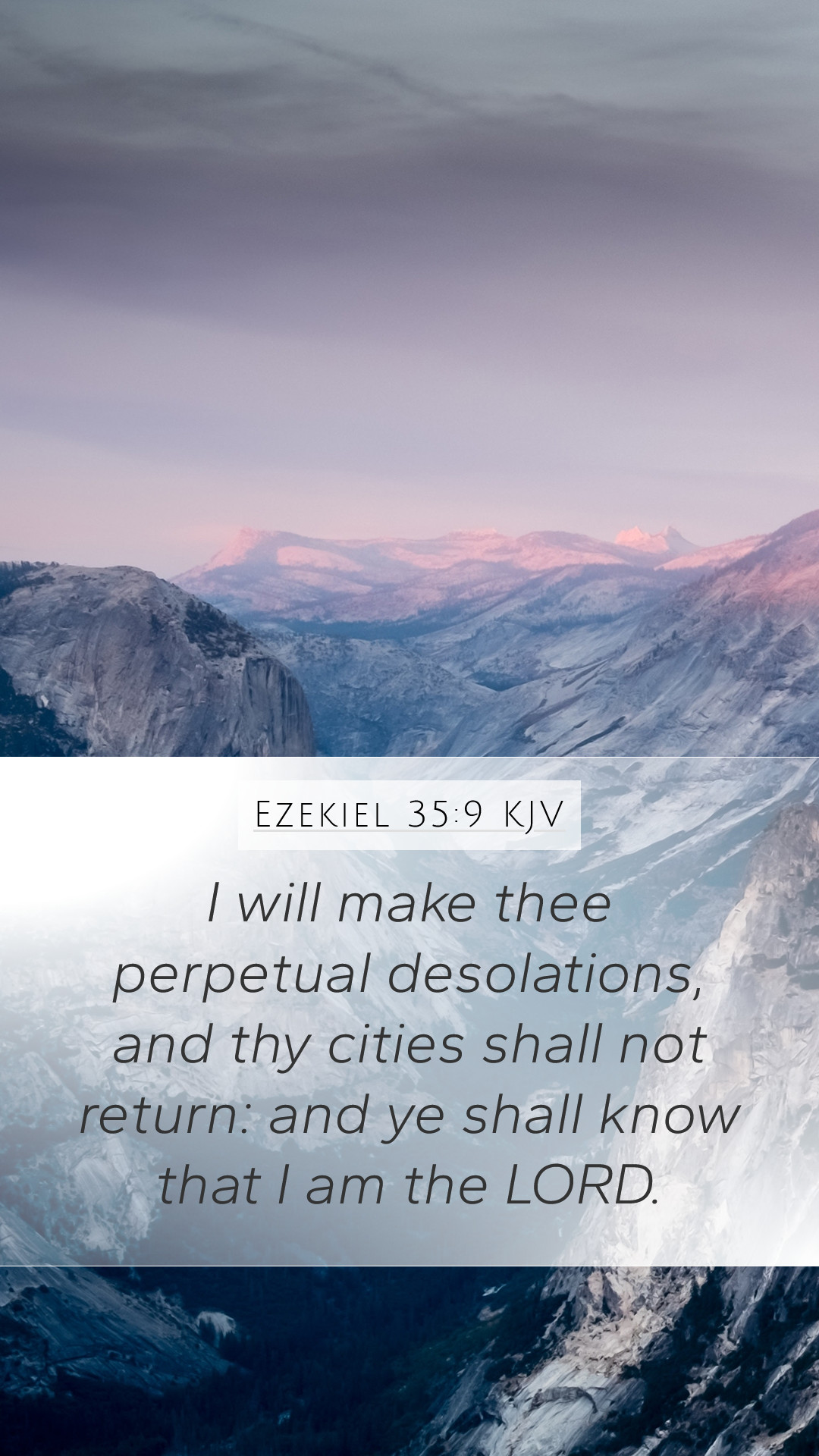Bible Verse Meaning: Ezekiel 35:9
The verse Ezekiel 35:9 states, "I will make you desolate forever, and your cities shall not return; and you shall know that I am the Lord." This scripture serves as a profound declaration of God's judgment against Edom, emphasizing His sovereignty and the finality of His decisions concerning nations. Through a combined analysis from public domain commentaries, we can glean deeper insights into this verse's meaning.
Key Themes and Interpretations
- Divine Judgment: The emphasis on desolation signifies God's retribution against Edom for their egregious actions against Israel. Matthew Henry's commentary notes that this destruction is an ultimate indication of God's displeasure.
- Sovereignty of God: The assertion "you shall know that I am the Lord" is crucial. It illustrates God's authority over nations and serves as a reminder that even amidst turmoil, His plan prevails. Albert Barnes reflects on this theme, stressing that God's will cannot be thwarted by human actions.
- Historical Context: Adam Clarke provides insights into the historical background of Edom's transgressions, which include betrayal and hostility against Israel. The desolation foretold in this verse is rooted in Edom's failure to recognize God's chosen people.
Detailed Exegesis
In the context of Ezekiel, the chapter focuses on the judgment of various nations, with Edom being singled out for its ongoing animosity towards Israel. Church teachings emphasize that understanding Ezekiel's prophecies requires careful study of the geopolitical landscape of the time.
God's Purpose in Judgment
The dire proclamation serves not only as retribution but also as a lesson for all nations. God intends for His judgments to be clear and to lead to recognition of His divine authority. The notion of “desolation forever” highlights the permanence of God's decisions, which is echoed in the writings of noted scholars.
The Role of Desolation
Desolation functions as a metaphor for spiritual barrenness as well as physical destruction. It illustrates the consequences of sin and rebellion against God's will. Matthew Henry highlights that the desolation leads to a comprehensive understanding of God's power, effectively silencing any pride that nations, including Edom, may harbor.
Application for Today
For modern readers, the implications of Ezekiel 35:9 extend beyond its historical context. Believers are compelled to reflect on their lives, considering how recognition of God’s sovereignty informs their decisions and interactions with others.
Lessons from Divine Retribution
- Awareness of Consequences: This verse serves as a reminder of the repercussions that follow defiance against God.
- Call to Repentance: Individuals and nations are encouraged to turn back to God to avoid similar fates as illustrated by Edom.
- Hope in Restoration: While judgment is present, there remains an underlying message of hope for those who align themselves with God's purposes.
Related Biblical Cross References
- Obadiah 1:10-21 - Prophecy against Edom.
- Isaiah 34:5-8 - The slaughter of God's enemies.
- Jeremiah 49:7-22 - A prophecy concerning Edom's downfall.
Conclusion
Ezekiel 35:9 stands as a significant verse within prophetic literature, offering insights into God's judgment and the importance of recognizing His sovereignty. Through the combined reflections of biblical commentaries, readers can appreciate the historical and spiritual implications of this scripture, fostering a deeper understanding of God's nature and His relationship with humanity.


